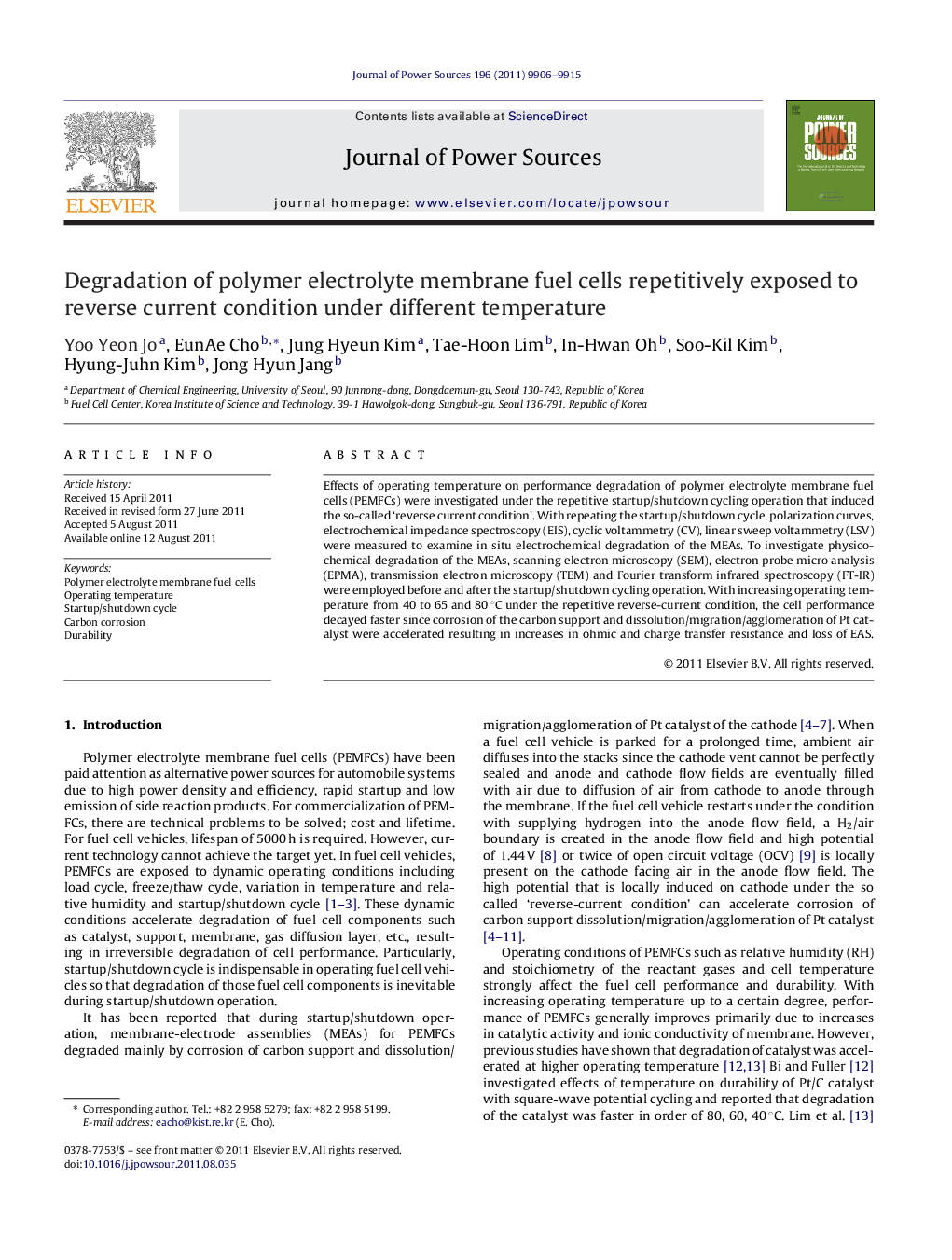| Article ID | Journal | Published Year | Pages | File Type |
|---|---|---|---|---|
| 1288648 | Journal of Power Sources | 2011 | 10 Pages |
Effects of operating temperature on performance degradation of polymer electrolyte membrane fuel cells (PEMFCs) were investigated under the repetitive startup/shutdown cycling operation that induced the so-called ‘reverse current condition’. With repeating the startup/shutdown cycle, polarization curves, electrochemical impedance spectroscopy (EIS), cyclic voltammetry (CV), linear sweep voltammetry (LSV) were measured to examine in situ electrochemical degradation of the MEAs. To investigate physicochemical degradation of the MEAs, scanning electron microscopy (SEM), electron probe micro analysis (EPMA), transmission electron microscopy (TEM) and Fourier transform infrared spectroscopy (FT-IR) were employed before and after the startup/shutdown cycling operation. With increasing operating temperature from 40 to 65 and 80 °C under the repetitive reverse-current condition, the cell performance decayed faster since corrosion of the carbon support and dissolution/migration/agglomeration of Pt catalyst were accelerated resulting in increases in ohmic and charge transfer resistance and loss of EAS.
► Performance decay and degradation rate was systematically studied at operating temperatures of 40, 65 and 80 °C. ► Carbon corrosion was investigated under the ‘reverse current condition’ in a single cell at operating temperatures of 40, 65 and 80 °C. ► With increasing the operating temperature from 40 to 65 and 80 °C, corrosion of the carbon support and dissolution/migration/agglomeration of Pt catalyst were accelerated resulting in decay in cell performance as well as increases in ohmic and charge transfer resistance and loss of EAS.
